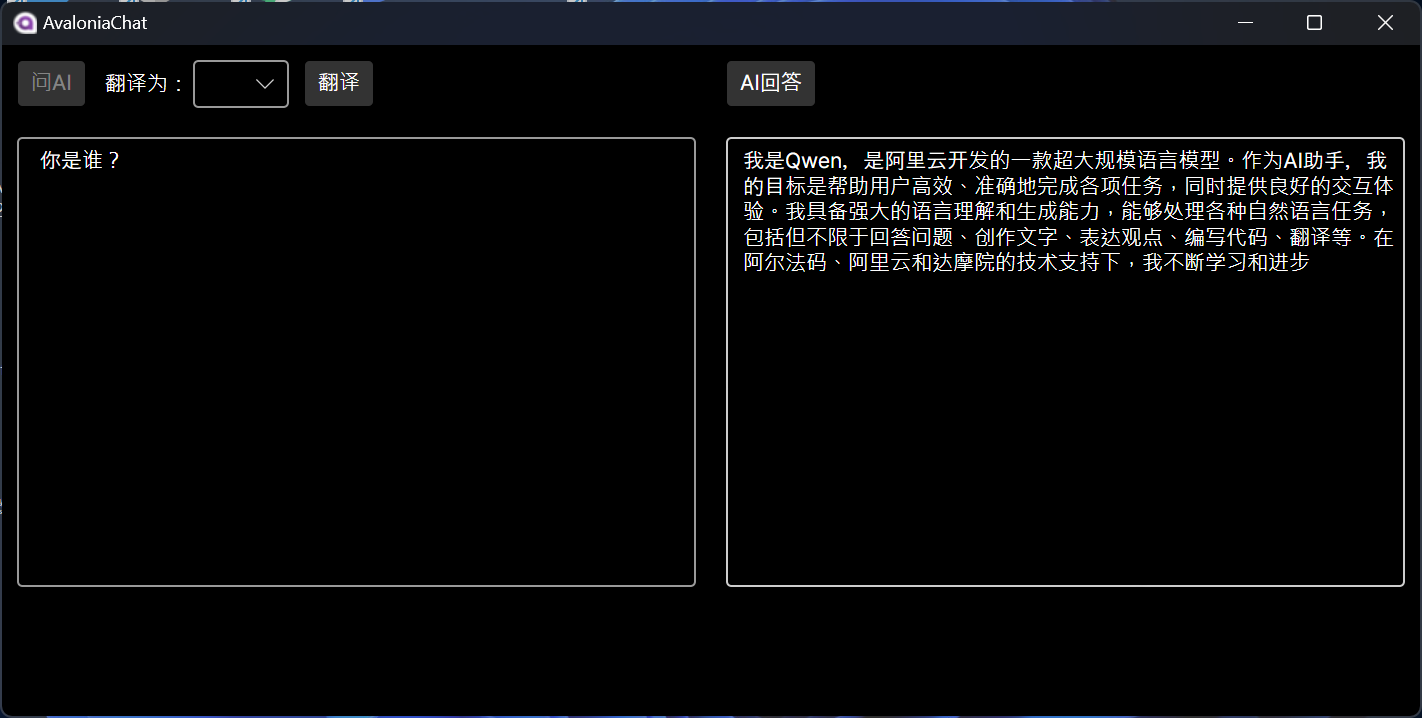

实现思路
登录
①自定义登录接口
调用ProviderManager的方法进行认证 如果认证通过生成jwt
把用户信息存入redis中
②自定义UserDetailsService
在这个实现类中去查询数据库
注意配置passwordEncoder为BCryptPasswordEncoder
退出登录,删除redis中的数据
准备工作!!!
1、添加依赖!

2、工具类和相关配置类
FastJsonRedisSerializer
/**
* Redis使用FastJson序列化
*
* @author sg
*/
public class FastJsonRedisSerializer<T> implements RedisSerializer<T>
{
public static final Charset DEFAULT_CHARSET = Charset.forName("UTF-8");
private Class<T> clazz;
static
{
ParserConfig.getGlobalInstance().setAutoTypeSupport(true);
}
public FastJsonRedisSerializer(Class<T> clazz)
{
super();
this.clazz = clazz;
}
@Override
public byte[] serialize(T t) throws SerializationException
{
if (t == null)
{
return new byte[0];
}
return JSON.toJSONString(t, SerializerFeature.WriteClassName).getBytes(DEFAULT_CHARSET);
}
@Override
public T deserialize(byte[] bytes) throws SerializationException
{
if (bytes == null || bytes.length <= 0)
{
return null;
}
String str = new String(bytes, DEFAULT_CHARSET);
return JSON.parseObject(str, clazz);
}
protected JavaType getJavaType(Class<?> clazz)
{
return TypeFactory.defaultInstance().constructType(clazz);
}
}RedisConfig
@Configuration
public class RedisConfig {
@Bean
@SuppressWarnings(value = { "unchecked", "rawtypes" })
public RedisTemplate<Object, Object> redisTemplate(RedisConnectionFactory connectionFactory)
{
RedisTemplate<Object, Object> template = new RedisTemplate<>();
template.setConnectionFactory(connectionFactory);
FastJsonRedisSerializer serializer = new FastJsonRedisSerializer(Object.class);
// 使用StringRedisSerializer来序列化和反序列化redis的key值
template.setKeySerializer(new StringRedisSerializer());
template.setValueSerializer(serializer);
// Hash的key也采用StringRedisSerializer的序列化方式
template.setHashKeySerializer(new StringRedisSerializer());
template.setHashValueSerializer(serializer);
template.afterPropertiesSet();
return template;
}
}WebConfig ———跨域(可不设置)
@Configuration
public class WebConfig implements WebMvcConfigurer {
@Override
public void addCorsMappings(CorsRegistry registry) {
registry.addMapping("/**") // 设置允许跨域的路径
.allowedOriginPatterns("*") // 设置允许跨域请求的域名
.allowCredentials(true) // 是否允许cookie
.allowedMethods("GET", "POST", "DELETE", "PUT") // 设置允许的请求方式
.allowedHeaders("*") // 设置允许的header属性
.maxAge(3600); // 跨域允许时间
}
@Bean//使用@Bean注入fastJsonHttpMessageConvert
public HttpMessageConverter fastJsonHttpMessageConverters() {
//1.需要定义一个Convert转换消息的对象
FastJsonHttpMessageConverter fastConverter = new
FastJsonHttpMessageConverter();
FastJsonConfig fastJsonConfig = new FastJsonConfig();
fastJsonConfig.setSerializerFeatures(SerializerFeature.PrettyFormat);
fastJsonConfig.setDateFormat("yyyy-MM-dd HH:mm:ss");
// SerializeConfig.globalInstance.put(Long.class, ToStringSerializer.instance);
fastJsonConfig.setSerializeConfig(SerializeConfig.globalInstance);
fastConverter.setFastJsonConfig(fastJsonConfig);
HttpMessageConverter<?> converter = fastConverter;
return converter;
}
@Override
public void configureMessageConverters(List<HttpMessageConverter<?>> converters) {
converters.add(fastJsonHttpMessageConverters());
}
}WebUtils
public class WebUtils
{
/**
* 将字符串渲染到客户端
*
* @param response 渲染对象
* @param string 待渲染的字符串
* @return null
*/
public static void renderString(HttpServletResponse response, String string) {
try
{
response.setStatus(200);
response.setContentType("application/json");
response.setCharacterEncoding("utf-8");
response.getWriter().print(string);
}
catch (IOException e)
{
e.printStackTrace();
}
}
public static void setDownLoadHeader(String filename, ServletContext context, HttpServletResponse response) throws UnsupportedEncodingException {
String mimeType = context.getMimeType(filename);//获取文件的mime类型
response.setHeader("content-type",mimeType);
String fname= URLEncoder.encode(filename,"UTF-8");
response.setHeader("Content-disposition","attachment; filename="+fname);
// response.setContentType("application/vnd.openxmlformats-officedocument.spreadsheetml.sheet");
// response.setCharacterEncoding("utf-8");
}
}RedisCache
@SuppressWarnings(value = { "unchecked", "rawtypes" })
@Component
public class RedisCache
{
@Autowired
public RedisTemplate redisTemplate;
/**
* 缓存基本的对象,Integer、String、实体类等
*
* @param key 缓存的键值
* @param value 缓存的值
*/
public <T> void setCacheObject(final String key, final T value)
{
redisTemplate.opsForValue().set(key, value);
}
/**
* 缓存基本的对象,Integer、String、实体类等
*
* @param key 缓存的键值
* @param value 缓存的值
* @param timeout 时间
* @param timeUnit 时间颗粒度
*/
public <T> void setCacheObject(final String key, final T value, final Integer timeout, final TimeUnit timeUnit)
{
redisTemplate.opsForValue().set(key, value, timeout, timeUnit);
}
/**
* 设置有效时间
*
* @param key Redis键
* @param timeout 超时时间
* @return true=设置成功;false=设置失败
*/
public boolean expire(final String key, final long timeout)
{
return expire(key, timeout, TimeUnit.SECONDS);
}
/**
* 设置有效时间
*
* @param key Redis键
* @param timeout 超时时间
* @param unit 时间单位
* @return true=设置成功;false=设置失败
*/
public boolean expire(final String key, final long timeout, final TimeUnit unit)
{
return redisTemplate.expire(key, timeout, unit);
}
/**
* 获得缓存的基本对象。
*
* @param key 缓存键值
* @return 缓存键值对应的数据
*/
public <T> T getCacheObject(final String key)
{
ValueOperations<String, T> operation = redisTemplate.opsForValue();
return operation.get(key);
}
/**
* 删除单个对象
*
* @param key
*/
public boolean deleteObject(final String key)
{
return redisTemplate.delete(key);
}
/**
* 删除集合对象
*
* @param collection 多个对象
* @return
*/
public long deleteObject(final Collection collection)
{
return redisTemplate.delete(collection);
}
/**
* 缓存List数据
*
* @param key 缓存的键值
* @param dataList 待缓存的List数据
* @return 缓存的对象
*/
public <T> long setCacheList(final String key, final List<T> dataList)
{
Long count = redisTemplate.opsForList().rightPushAll(key, dataList);
return count == null ? 0 : count;
}
/**
* 获得缓存的list对象
*
* @param key 缓存的键值
* @return 缓存键值对应的数据
*/
public <T> List<T> getCacheList(final String key)
{
return redisTemplate.opsForList().range(key, 0, -1);
}
/**
* 缓存Set
*
* @param key 缓存键值
* @param dataSet 缓存的数据
* @return 缓存数据的对象
*/
public <T> BoundSetOperations<String, T> setCacheSet(final String key, final Set<T> dataSet)
{
BoundSetOperations<String, T> setOperation = redisTemplate.boundSetOps(key);
Iterator<T> it = dataSet.iterator();
while (it.hasNext())
{
setOperation.add(it.next());
}
return setOperation;
}
/**
* 获得缓存的set
*
* @param key
* @return
*/
public <T> Set<T> getCacheSet(final String key)
{
return redisTemplate.opsForSet().members(key);
}
/**
* 缓存Map
*
* @param key
* @param dataMap
*/
public <T> void setCacheMap(final String key, final Map<String, T> dataMap)
{
if (dataMap != null) {
redisTemplate.opsForHash().putAll(key, dataMap);
}
}
/**
* 获得缓存的Map
*
* @param key
* @return
*/
public <T> Map<String, T> getCacheMap(final String key)
{
return redisTemplate.opsForHash().entries(key);
}
/**
* 往Hash中存入数据
*
* @param key Redis键
* @param hKey Hash键
* @param value 值
*/
public <T> void setCacheMapValue(final String key, final String hKey, final T value)
{
redisTemplate.opsForHash().put(key, hKey, value);
}
/**
* 获取Hash中的数据
*
* @param key Redis键
* @param hKey Hash键
* @return Hash中的对象
*/
public <T> T getCacheMapValue(final String key, final String hKey)
{
HashOperations<String, String, T> opsForHash = redisTemplate.opsForHash();
return opsForHash.get(key, hKey);
}
/**
* 删除Hash中的数据
*
* @param key
* @param hkey
*/
public void delCacheMapValue(final String key, final String hkey)
{
HashOperations hashOperations = redisTemplate.opsForHash();
hashOperations.delete(key, hkey);
}
/**
* 获取多个Hash中的数据
*
* @param key Redis键
* @param hKeys Hash键集合
* @return Hash对象集合
*/
public <T> List<T> getMultiCacheMapValue(final String key, final Collection<Object> hKeys)
{
return redisTemplate.opsForHash().multiGet(key, hKeys);
}
/**
* 获得缓存的基本对象列表
*
* @param pattern 字符串前缀
* @return 对象列表
*/
public Collection<String> keys(final String pattern)
{
return redisTemplate.keys(pattern);
}
}JwtUtil
/**
* JWT工具类
*/
public class JwtUtil {
//有效期为
public static final Long JWT_TTL = 24*60 * 60 *1000L;// 60 * 60 *1000 一个小时
//设置秘钥明文
public static final String JWT_KEY = "sangeng";
public static String getUUID(){
String token = UUID.randomUUID().toString().replaceAll("-", "");
return token;
}
/**
* 生成jtw
* @param subject token中要存放的数据(json格式)
* @return
*/
public static String createJWT(String subject) {
JwtBuilder builder = getJwtBuilder(subject, null, getUUID());// 设置过期时间
return builder.compact();
}
/**
* 生成jtw
* @param subject token中要存放的数据(json格式)
* @param ttlMillis token超时时间
* @return
*/
public static String createJWT(String subject, Long ttlMillis) {
JwtBuilder builder = getJwtBuilder(subject, ttlMillis, getUUID());// 设置过期时间
return builder.compact();
}
private static JwtBuilder getJwtBuilder(String subject, Long ttlMillis, String uuid) {
SignatureAlgorithm signatureAlgorithm = SignatureAlgorithm.HS256;
SecretKey secretKey = generalKey();
long nowMillis = System.currentTimeMillis();
Date now = new Date(nowMillis);
if(ttlMillis==null){
ttlMillis=JwtUtil.JWT_TTL;
}
long expMillis = nowMillis + ttlMillis;
Date expDate = new Date(expMillis);
return Jwts.builder()
.setId(uuid) //唯一的ID
.setSubject(subject) // 主题 可以是JSON数据
.setIssuer("sg") // 签发者
.setIssuedAt(now) // 签发时间
.signWith(signatureAlgorithm, secretKey) //使用HS256对称加密算法签名, 第二个参数为秘钥
.setExpiration(expDate);
}
/**
* 创建token
* @param id
* @param subject
* @param ttlMillis
* @return
*/
public static String createJWT(String id, String subject, Long ttlMillis) {
JwtBuilder builder = getJwtBuilder(subject, ttlMillis, id);// 设置过期时间
return builder.compact();
}
public static void main(String[] args) throws Exception {
String token = "eyJhbGciOiJIUzI1NiJ9.eyJqdGkiOiJjYWM2ZDVhZi1mNjVlLTQ0MDAtYjcxMi0zYWEwOGIyOTIwYjQiLCJzdWIiOiJzZyIsImlzcyI6InNnIiwiaWF0IjoxNjM4MTA2NzEyLCJleHAiOjE2MzgxMTAzMTJ9.JVsSbkP94wuczb4QryQbAke3ysBDIL5ou8fWsbt_ebg";
Claims claims = parseJWT(token);
System.out.println(claims);
}
/**
* 生成加密后的秘钥 secretKey
* @return
*/
public static SecretKey generalKey() {
byte[] encodedKey = Base64.getDecoder().decode(JwtUtil.JWT_KEY);
SecretKey key = new SecretKeySpec(encodedKey, 0, encodedKey.length, "AES");
return key;
}
/**
* 解析
*
* @param jwt
* @return
* @throws Exception
*/
public static Claims parseJWT(String jwt) throws Exception {
SecretKey secretKey = generalKey();
return Jwts.parser()
.setSigningKey(secretKey)
.parseClaimsJws(jwt)
.getBody();
}
}代码实现:
自定义登录接口
BlogLoginController
@RestController
public class BlogLoginController {
@Autowired
private BlogLoginService blogLoginService;
@PostMapping("/login")
public ResponseResult login(@RequestBody User user){
return blogLoginService.login(user);
}
}
BlogLoginService
public interface BlogLoginService {
ResponseResult login(User user);
}
新建配置类,SecurityConfig
@Configuration
public class SecurityConfig extends WebSecurityConfigurerAdapter {
@Override
@Bean
public AuthenticationManager authenticationManagerBean() throws Exception {
return super.authenticationManagerBean();
}
@Autowired
private JwtAuthenticationTokenFilter jwtAuthenticationTokenFilter;
@Override
protected void configure(HttpSecurity http) throws Exception {
http
//关闭csrf
.csrf().disable()
//不通过Session获取SecurityContext
.sessionManagement().sessionCreationPolicy(SessionCreationPolicy.STATELESS)
.and()
.authorizeRequests()
// 对于登录接口 允许匿名访问
.antMatchers("/login").anonymous()
.antMatchers("/link/getAllLink").authenticated()
// 除上面外的所有请求全部不需要认证即可访问
.anyRequest().permitAll();
http.logout().disable();
http.addFilterBefore(jwtAuthenticationTokenFilter, UsernamePasswordAuthenticationFilter.class);
//允许跨域
http.cors();
}
@Bean
public PasswordEncoder passwordEncoder() {
return new BCryptPasswordEncoder();
}
}
BlogLoginServiceImpl
@Service
public class BlogLoginServiceImpl implements BlogLoginService {
@Autowired
private AuthenticationManager authenticationManager;
@Autowired
private RedisCache redisCache;
@Override
public ResponseResult login(User user) {
UsernamePasswordAuthenticationToken authenticationToken = new UsernamePasswordAuthenticationToken(user.getUserName(),user.getPassword());
Authentication authenticate = authenticationManager.authenticate(authenticationToken);
//判断是否认证通过
if(Objects.isNull(authenticate)){
throw new RuntimeException("用户名或密码错误");
}
//获取userId 生成token
LoginUser loginUser = (LoginUser) authenticate.getPrincipal();
String userId = loginUser.getUser().getId().toString();
String jwt = JwtUtil.createJWT(userId);
//把用户信息存入redis
redisCache.setCacheObject("blogLogin:"+userId,loginUser);
//把token和userInfo封装 返回
//把User转换UserInfoVO
UserInfoVO userInfoVO = BeanCopyUtils.copyBean(loginUser.getUser(), UserInfoVO.class);
BlogUserLoginVO vo = new BlogUserLoginVO(jwt,userInfoVO);
return ResponseResult.okResult(vo);
}
}新建UserDetailServiceImpl实现UserDetailService
自定义UserDetailsService
在这个实现类中去查询数据库
注意配置passwordEncoder为BCryptPasswordEncoder
@Service
public class UserDetailsServiceImpl implements UserDetailsService {
@Autowired
private UserMapper userMapper;
@Override
public UserDetails loadUserByUsername(String username) throws UsernameNotFoundException {
//根据用户名查询用户信息
LambdaQueryWrapper<User> queryWrapper = new LambdaQueryWrapper<>();
queryWrapper.eq(User::getUserName,username);
User user = userMapper.selectOne(queryWrapper);
//判断是否查到用户 如果没查到抛出异常
if (Objects.isNull(user)){
throw new RuntimeException("用户不存在");
}
//返回用户信息
//TODO 查询权限信息封装
return new LoginUser(user);
}
}LoginUser实现UserDetails
@Data
@AllArgsConstructor
@NoArgsConstructor
public class LoginUser implements UserDetails {
private User user;
@Override
public Collection<? extends GrantedAuthority> getAuthorities() {
return null;
}
@Override
public String getPassword() {
return user.getPassword();
}
@Override
public String getUsername() {
return user.getUserName();
}
@Override
public boolean isAccountNonExpired() {
return true;
}
@Override
public boolean isAccountNonLocked() {
return true;
}
@Override
public boolean isCredentialsNonExpired() {
return true;
}
@Override
public boolean isEnabled() {
return true;
}
}
BlogUserLoginVo
@Data
@NoArgsConstructor
@AllArgsConstructor
public class BlogUserLoginVO {
private String token;
private UserInfoVO userInfo;
}
UserInfoVo
@Data
@Accessors(chain = true)
public class UserInfoVO {
/**
* 主键
*/
private Long id;
/**
* 昵称
*/
private String nickName;
/**
* 头像
*/
private String avatar;
private String sex;
private String email;
}
登录校验过滤器代码实现
思路
定义
Jwt
认证过滤器
获取
token
解析
token
获取其中的
userid
从
redis
中获取用户信息
存入
SecurityContextHolder
JwtAuthenticationTokenFilter
@Component
public class JwtAuthenticationTokenFilter extends OncePerRequestFilter {
@Autowired
private RedisCache redisCache;
@Override
protected void doFilterInternal(HttpServletRequest request, HttpServletResponse response, FilterChain filterChain) throws ServletException, IOException {
//获取请求头中的token
String token = request.getHeader("token");
if(!StringUtils.hasText(token)){
//说明该接口不需要登录 直接放行
filterChain.doFilter(request,response);
return;
}
//解析获取userId
Claims claims = null;
try {
claims = JwtUtil.parseJWT(token);
} catch (Exception e) {
e.printStackTrace();
//token超时 token非法
//响应告诉前端需要重新登录
ResponseResult result = ResponseResult.errorResult(AppHttpCodeEnum.NEED_LOGIN);
WebUtils.renderString(response, JSON.toJSONString(result));
return;
}
String userId = claims.getSubject();
//从redis中获取用户信息
LoginUser loginUser = redisCache.getCacheObject("blogLogin:" + userId);
//如果获取不到
if(Objects.isNull(loginUser)){
//说明登录过期 提示重新登录
ResponseResult result = ResponseResult.errorResult(AppHttpCodeEnum.NEED_LOGIN);
WebUtils.renderString(response, JSON.toJSONString(result));
return;
}
//存入SecurityContextHolder
UsernamePasswordAuthenticationToken authenticationToken = new UsernamePasswordAuthenticationToken(loginUser,null,null);
SecurityContextHolder.getContext().setAuthentication(authenticationToken);
filterChain.doFilter(request,response);
}
}SecurityConfig
@Configuration
public class SecurityConfig extends WebSecurityConfigurerAdapter {
@Override
@Bean
public AuthenticationManager authenticationManagerBean() throws Exception {
return super.authenticationManagerBean();
}
@Autowired
private JwtAuthenticationTokenFilter jwtAuthenticationTokenFilter;
@Override
protected void configure(HttpSecurity http) throws Exception {
http
//关闭csrf
.csrf().disable()
//不通过Session获取SecurityContext
.sessionManagement().sessionCreationPolicy(SessionCreationPolicy.STATELESS)
.and()
.authorizeRequests()
// 对于登录接口 允许匿名访问
.antMatchers("/login").anonymous()
.antMatchers("/link/getAllLink").authenticated()
// 除上面外的所有请求全部不需要认证即可访问
.anyRequest().permitAll();
http.logout().disable();
http.addFilterBefore(jwtAuthenticationTokenFilter, UsernamePasswordAuthenticationFilter.class);
//允许跨域
http.cors();
}
@Bean
public PasswordEncoder passwordEncoder() {
return new BCryptPasswordEncoder();
}
}
认证授权失败处理
目前我们的项目在认证出错或者权限不足的时候响应回来的Json是Security的异常处理结果。但是这个
响应的格式肯定是不符合我们项目的接口规范的。所以需要自定义异常处理。
AuthenticationEntryPoint 认证失败处理器
/**
* 认证失败处理器
*/
@Component
public class AuthenticationEntryPointImpl implements AuthenticationEntryPoint {
@Override
public void commence(HttpServletRequest request, HttpServletResponse response, AuthenticationException e) throws IOException, ServletException {
e.printStackTrace();
//InsufficientAuthenticationException
//BadCredentialsException
ResponseResult result = null;
if(e instanceof BadCredentialsException){
result = ResponseResult.errorResult(AppHttpCodeEnum.LOGIN_ERROR.getCode(),e.getMessage());
}else if (e instanceof InsufficientAuthenticationException){
result = ResponseResult.errorResult(AppHttpCodeEnum.NEED_LOGIN);
}else {
result = ResponseResult.errorResult(AppHttpCodeEnum.SYSTEM_ERROR.getCode(),"认证或授权失败");
}
//响应给前端
WebUtils.renderString(response, JSON.toJSONString(result));
}
}
AccessDeniedHandler 授权失败处理器
/**
* 授权失败处理器
*/
@Component
public class AccessDeniedHandlerImpl implements AccessDeniedHandler {
@Override
public void handle(HttpServletRequest request, HttpServletResponse response, AccessDeniedException e) throws IOException, ServletException {
e.printStackTrace();
ResponseResult result = ResponseResult.errorResult(AppHttpCodeEnum.NO_OPERATOR_AUTH);
//响应给前端
WebUtils.renderString(response, JSON.toJSONString(result));
}
}配置Security异常处理器
@Configuration
public class SecurityConfig extends WebSecurityConfigurerAdapter {
@Override
@Bean
public AuthenticationManager authenticationManagerBean() throws Exception {
return super.authenticationManagerBean();
}
@Autowired
private JwtAuthenticationTokenFilter jwtAuthenticationTokenFilter;
@Autowired
AuthenticationEntryPoint authenticationEntryPoint;
@Autowired
AccessDeniedHandler accessDeniedHandler;
@Override
protected void configure(HttpSecurity http) throws Exception {
http
//关闭csrf
.csrf().disable()
//不通过Session获取SecurityContext
.sessionManagement().sessionCreationPolicy(SessionCreationPolicy.STATELESS)
.and()
.authorizeRequests()
// 对于登录接口 允许匿名访问
.antMatchers("/login").anonymous()
.antMatchers("/link/getAllLink").authenticated()
// 除上面外的所有请求全部不需要认证即可访问
.anyRequest().permitAll();
//配置异常处理器
http.exceptionHandling()
.authenticationEntryPoint(authenticationEntryPoint)
.accessDeniedHandler(accessDeniedHandler);
http.logout().disable();
http.addFilterBefore(jwtAuthenticationTokenFilter, UsernamePasswordAuthenticationFilter.class);
//允许跨域
http.cors();
}
@Bean
public PasswordEncoder passwordEncoder() {
return new BCryptPasswordEncoder();
}
}
统一异常处理
实际我们在开发过程中可能需要做很多的判断校验,如果出现了非法情况我们是期望响应对应的提示 的。但是如果我们每次都自己手动去处理就会非常麻烦。我们可以选择直接抛出异常的方式,然后对异 常进行统一处理。把异常中的信息封装成ResponseResult响应给前端。
SystemException
public class SystemException extends RuntimeException {
private int code;
private String msg;
public int getCode() {
return code;
}
public String getMsg() {
return msg;
}
public SystemException(AppHttpCodeEnum httpCodeEnum) {
super(httpCodeEnum.getMsg());
this.code = httpCodeEnum.getCode();
this.msg = httpCodeEnum.getMsg();
}
}
GlobalExceptionHandler
@RestControllerAdvice
@Slf4j
public class GlobalExceptionHandler {
@ExceptionHandler(SystemException.class)
public ResponseResult systemExceptionHandler(SystemException e){
//打印异常信息
log.error("出现了异常!{}",e);
//从异常对象中获取提示信息封装发返回
return ResponseResult.errorResult(e.getCode(),e.getMsg());
}
@ExceptionHandler(Exception.class)
public ResponseResult exceptionHandler(Exception e){
//打印异常信息
log.error("出现了异常!{}",e);
//从异常对象中获取提示信息封装发返回
return ResponseResult.errorResult(AppHttpCodeEnum.SYSTEM_ERROR.getCode(),e.getMessage());
}
}退出登录接口
要实现的操作:
删除
redis
中的用户信息
BlogLoginController
@PostMapping("/logout")
public ResponseResult logout(){
return blogLoginService.logout();
}
BlogLoginService
ResponseResult logout();BlogLoginServiceImpl
@Override
public ResponseResult logout() {
//获取token 解析获取userId
Authentication authentication = SecurityContextHolder.getContext().getAuthentication();
LoginUser loginUser = (LoginUser) authentication.getPrincipal();
//获取userId
Long userId = loginUser.getUser().getId();
//删除redis中的用户信息
redisCache.deleteObject("blogLogin:"+userId);
return ResponseResult.okResult();
}
SecurityConfig
要关闭默认的退出登录功能。并且要配置我们的退出登录接口需要认证才能访问
@Override
protected void configure(HttpSecurity http) throws Exception {
http
//关闭csrf
.csrf().disable()
//不通过Session获取SecurityContext
.sessionManagement().sessionCreationPolicy(SessionCreationPolicy.STATELESS)
.and()
.authorizeRequests()
// 对于登录接口 允许匿名访问
.antMatchers("/login").anonymous()
.antMatchers("/logout").authenticated()
.antMatchers("/link/getAllLink").authenticated()
// 除上面外的所有请求全部不需要认证即可访问
.anyRequest().permitAll();
//配置异常处理器
http.exceptionHandling()
.authenticationEntryPoint(authenticationEntryPoint)
.accessDeniedHandler(accessDeniedHandler);
http.logout().disable();
http.addFilterBefore(jwtAuthenticationTokenFilter, UsernamePasswordAuthenticationFilter.class);
//允许跨域
http.cors();
}



















